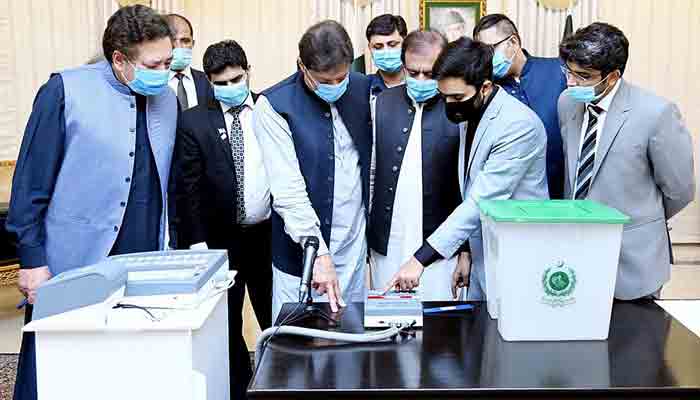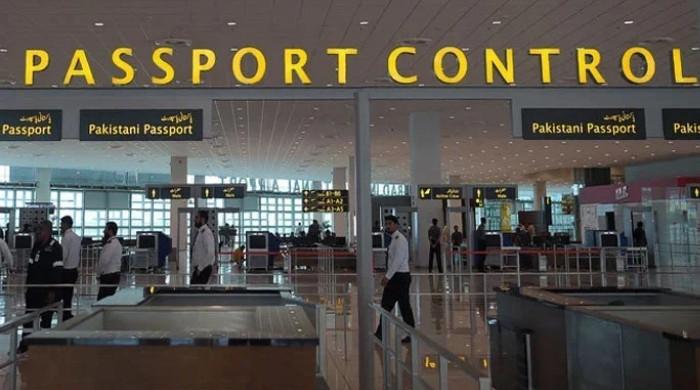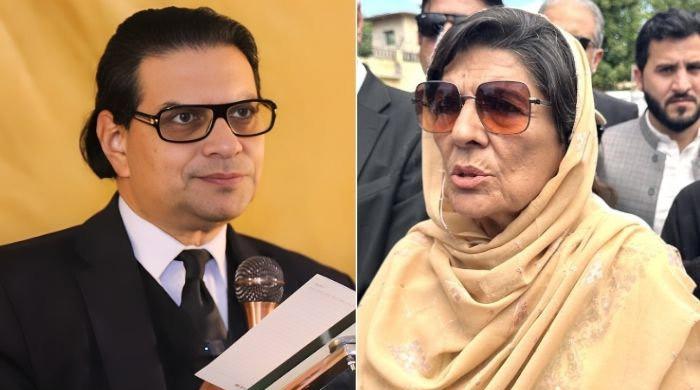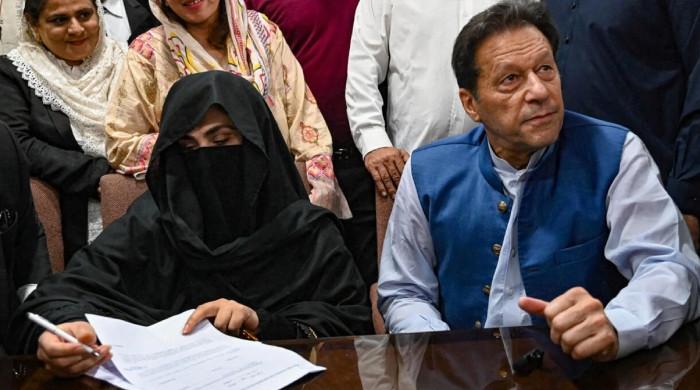EVMs are ‘hackable’ and ‘tamper prone’, warns ECP
The ECP opines that holding polls across Pakistan in a single day, using EVMs, is not possible
September 08, 2021

- The Election Commission has raised 37 objections on the electronic voting machines developed by the science ministry.
- ECP says not enough time for a large scale implementation of EVMs in the upcoming election.
- ECP suggests that a political consensus be developed in the parliament.
As the government and opposition debate about introducing electronic voting in the next general polls, the Election Commission of Pakistan has listed down 37 reservations, including that electronic voting machines (EVMs) are “hackable” and can be easily tampered with.
The federal minister for science and technology Shibli Faraz has repeatedly insisted that the EVMs are the “best solution to rigging” in the next general polls and has even prepared a prototype of the machine for the Senate Committee on Parliamentary Affairs to examine.
However, on Tuesday, during a meeting of the Senate committee, the election commission listed down the challenges the system could face if the machines are rolled out in haste.
Of the concerns noted, the ECP wrote that there was not enough time for a “large scale implementation of EVMs in the upcoming election”, as per a copy available with Geo.tv. Pakistan’s next general polls are slated for 2023.
Other challenges include, lack of secrecy of the ballot, lack of large scale pilot testing and the machines not being financially viable.
The Commission further wrote that the EVMs cannot “prevent rigging like booth capturing”, adding that they were hackable and tamper prone. The software, it highlighted, can also easily be altered.
“It is nearly impossible to ensure that every machine is honest,” the ECP noted. The EVMs cannot prevent low voter turnout, low women voter turnout, vote buying, misuse of state authorities and dishonest voting staff, amongst other things, the Commission argued.
The ECP also opined that holding polls across Pakistan in a single day, using EVMs, was not possible.
In order to solve the problems, the ECP suggested that a political consensus be developed in the parliament with all political parties and legal amendments be made to the constitution, law and rules to facilitate EVMs.









